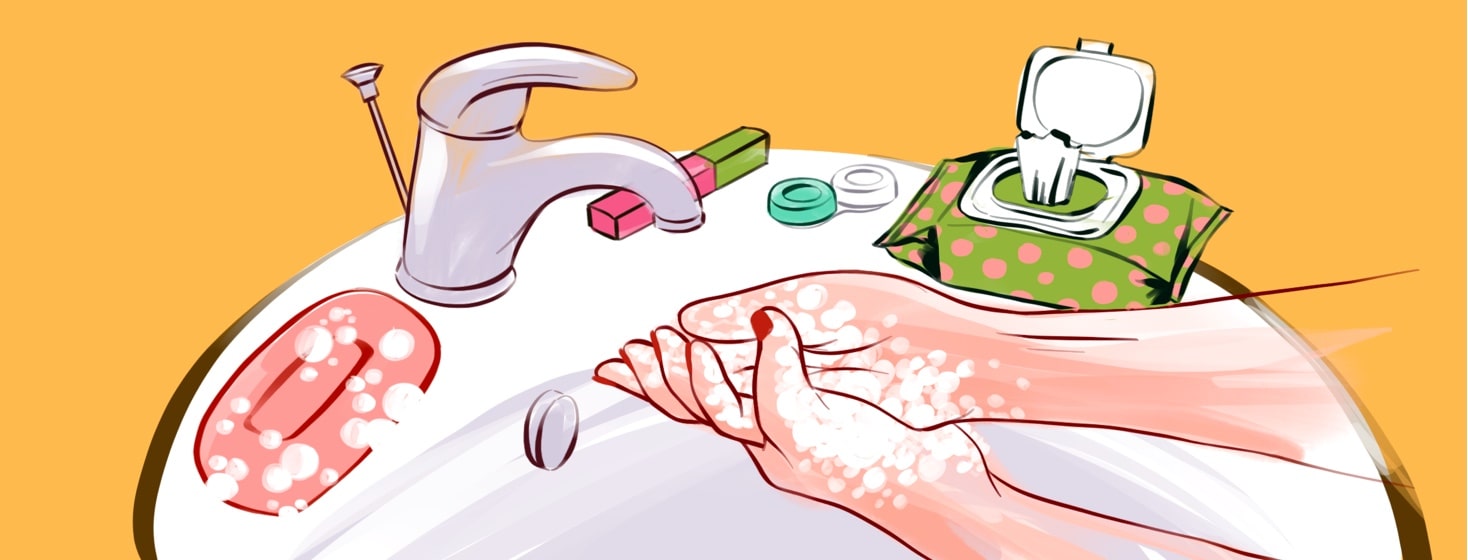Preventing Eye Infections
I don't know about you guys, but I am constantly aware that my eyes are touched so much. When I was a kid it always felt really gross to think about touching my eyes, but now I touch them all the time by way of wearing contacts, wearing makeup, and enduring a few surgeries along the way.
Our eyes are fragile and it is so important to keep them healthy. Each time we touch our eyes, for whatever reason, there is a risk of bacterial infection, and as a mom of two young boys and a teacher who works in what I'd compare to a Petri dish, I find myself getting pink eye at least once a school year. Over time, I've learned a lot of strategies to keep my eyes from becoming infected with pesky bacteria.
Cosmetics can cause bacteria
Wearing makeup is one of the quickest and easiest ways to get unwanted bacteria in our eyes. As soon as we use makeup just one time, we start allowing bacteria to grow all over our cosmetics and brushes. Good thing there are a few things we can do to lessen the chance of bacteria taking over.
First, it's important to remove all makeup before bed. I know, I know...sometimes we are so tired and this seems like a daunting task, but I promise you won't be sorry. Another way to prevent the spread of bacteria by way of cosmetics is to never share them. Does your friend have the most amazing mascara and you just have to try it? You may want to invest in your own wand.
Remove your contacts
Another daunting task before bedtime after a long, hard day is removing our contacts. Since I am blind as a bat without my contacts on, I often find myself finally snuggled up under the covers just to remember that I forgot to remove my contacts. Ugh, right? Not only can contacts harbor bacteria when not being cleaned, but our eyes also need to 'breathe'. Sleeping in contacts provides a small breeding ground for bacteria, so it's best to always remove and clean them at the end of each day. Don't forget to disinfect contact cases from time to time. I try to remember to throw mine in the dishwasher once a week, it works like a charm!
Wearing contacts means a little discomfort here and there...and I often find myself wanting to just quickly swipe my contact across my eye to readjust it or itch and rub it if something just doesn't feel right. Washing your hands thoroughly before doing any of these things also helps to eliminate bacteria from being transferred from our dirty fingers to our clean eyes.
Post-surgery or injection
If you ever need surgery on your eyes or receive injections for wet macular degeneration treatments, it's extremely important to follow all of your doctor's care instructions for when you get home. If you have any abnormal physical or visual symptoms post-surgery, be sure to contact your doctor immediately. A quick phone call can be the difference between a big problem and a fixable one, or anxiety and peace of mind.
If infection occurs
Seek help from a doctor if infection does occur. It's true that most eye infections can and will clear up on their own, but to me, it just isn't worth the risk. If an infection gets bad enough, it could do some serious harm to our already fragile and struggling eyes. I'd rather be safe than sorry when it comes to this, as some infections do require medication to clear them up.
It's also important to wear glasses and not contacts until any infection is completely cleared up. Placing contacts on infected eyes simply passes the bacteria around and may make it more difficult to get rid of. This would be another time you'd want to clean or change out any cosmetic brushes or contact cases that you used while your eyes were infected.
I hope these tips are helpful for any future issues with surgeries or bacterial eye infections.
Some things are worth getting up out of bed for,
Andrea Junge

Join the conversation